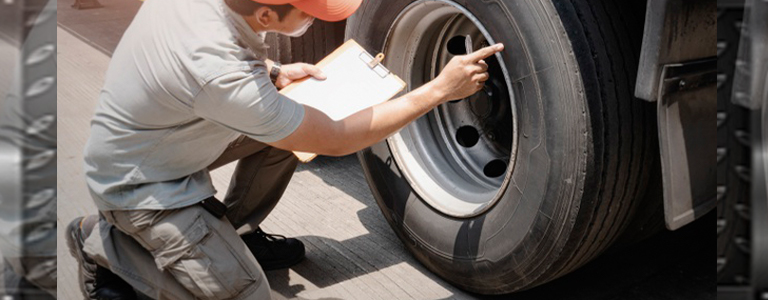
May 19, 2021 Last updated on June 16, 2023 by Bob Fisher Bob Fisher Tilt/Dump Trailers
Tire safety is often a top concern for those who are thinking of purchasing a trailer, and for a good reason. Trailer tire hazards are something that should be taken very seriously. Before you go looking for a flatdeck, tilt, or dump trailer for sale, learn about tire safety and the maintenance needed to keep your trailer tires in top condition.
The tires found on a trailer are different from the tires found on a passenger vehicle, and they operate a little differently. Trailer tires are designed to carry heavy loads and should be inspected regularly to ensure proper safety.
Studies on tire safety show that tire hazards can be reduced by following a few simple steps. These include:
Tire pressure is often one of those things that people forget about. However, it is more important than people realize. Correct tire inflation can affect many things, including stopping distance, fuel efficiency, and tread life.
It is important to check the tire pressure in the morning before driving to get the most accurate reading. Also, be aware that pressure can drop in colder temperatures and rise in warmer weather. Air may need to be added into tires after the first few cold nights in the fall.
This is something that many people are guilty of. When working a job, it is easy to overload a trailer so you don’t need to make additional hauling trips. But it may not be worth it in the long run. By overloading a trailer, you will be putting added stress on the tires and creating a hazard on the road.
Be sure always to observe your tire and vehicle load limits. While it may be tempting to haul more than is recommended, it can cost you a blown-out tire, tread separation, or worse.
Always choose tires that have the same load range as the trailer. As other components of a trailer have weight limits, you can ensure you are not overstressing any part of the tires or the trailer itself by matching the tires to the trailer.
Some jobs may require you to travel down roads less travelled. Be careful and try to avoid any hazards, such as potholes. New construction sites can also be a point of concern if nails and other debris are lying around. By being mindful of where you take your trailer, you can help to reduce your risk of getting a flat.
Trailer tires are designed to support the vertical load on a trailer, which is why they should be inspected regularly. Without a proper inspection, you may put yourself or others on the road in harm’s way.
Your inspection of the tires should include looking for tire tread wear, possible cuts or slashes, and other irregularities. If you notice anything problematic about the level of wear on the tire, it may be time to replace it.
If tires seem more worn on one side, your trailer is possibly sitting out of alignment, which can occur due to axel problems or other issues. This is a problem that you should get checked by a professional. Tread separation or blowout and flat tires can be avoided if these easy regular maintenance steps are performed.
No matter what type of trailer you have, it is vital to inspect tires to avoid any hazards regularly. Trailer tires typically last an average of three to six years, but this can range depending on the quality of the tires and the maintenance you keep on the tires.
At Millroad Manufacturing, we offer a wide variety of trailers for sale. If you are looking for a landscape, flatdeck, tilt, custom, or dump trailer for sale, we can help! Our expert team of dealers is available to discuss the benefits of owning a trailer and can help guide you to find the appropriate trailer to fit your needs. Check out our website to learn more about our extensive selection.